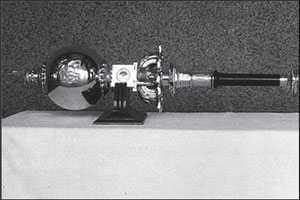Law separate from lawmakers?
 Last
week saw yet another example of the slow erosion of systems that makes
justice so alien a concept for our people. In Parliament we received yet
another Bill containing amendments to a previous Bill. It will be taken
up only later, so I was not surprised that the original Bill was not
available, since anyone interested could look it up in the interim in
the Parliament Library. But once again I found that the notes at the
side of the document, which are supposed to sum up the content of each
clause, simply noted that the clauses were amendments to previous
clauses. Last
week saw yet another example of the slow erosion of systems that makes
justice so alien a concept for our people. In Parliament we received yet
another Bill containing amendments to a previous Bill. It will be taken
up only later, so I was not surprised that the original Bill was not
available, since anyone interested could look it up in the interim in
the Parliament Library. But once again I found that the notes at the
side of the document, which are supposed to sum up the content of each
clause, simply noted that the clauses were amendments to previous
clauses.

The summing up, I should note, had been included at the beginning of
the Bill. This does not happen always, so one should be thankful that
this time at least anyone looking at the Bill could find out at a glance
what was happening where. But I fail to understand why a custom designed
for convenience, to allow anyone looking at the Bill to see immediately
the impact of each clause, is now ignored. The only place where it still
prevails is in the last two clauses of the Bill, where a note on the
side tells us exactly what is in the Bill itself. One notable piece of
information thus highlighted is that, where versions of the Bill in
different languages are different, the Sinhala text shall prevail.
Consultative Committees
The Secretary General of Parliament understood why I thought this
absurd, but I fear that most of my colleagues who were at the Justice
Ministry Consultative Committee meeting at which I brought up the matter
were bored, and seemed to think I was making a fuss about nothing.
Consultative Committees are not supposed to be about this sort of thing,
but should rather be concerned with whether the Courts in one’s
electorate function well, which often translates into whether an
adequate Courthouse has been built. Principles of legislation are not
seen as interesting or important.
Fortunately the Minister, who is a lawyer, understood, as did another
Minister who was present, and I am promised review of the practice. But
I am saddened that most legislators do not bother about unnecessary
complications. One of their prime responsibilities should be to see that
laws they pass are readily understandable, since they are making laws
for the people not for lawyers. Unfortunately they seem to think that
looking critically at what is placed before them is not really their
business, and it is simply voting for or against Bills that is their
sole responsibility – and making party political points in debates
rather than addressing the text of proposed legislation.
Bureaucratic systems
Given the electoral system under which they have been selected to
Parliament, and through which they hope to return to another Parliament,
this lack of attention to policies and principles is understandable.
Though some make valiant efforts to focus on general subjects, through
adjournment motions, given that hardly anyone remains in Parliament for
adjournment debates unless a particularly contentious issue is being
brought up by the opposition, there is little scope for consideration of
wider issues. Instead, as a glance at the minutes of any Consultative
Committee indicate, we have individuals drawing attention to problems in
the areas they represent – in short, we have not consultation but
grievance mechanisms.
 In
Parliament, it is Ministers who have to deal with grievances, so that
decisions can in theory be made in accordance with departmental
policies, not the predilections of individuals. But in the regions,
where the balance of power is very different, Members of Parliament can
exercise much greater influence. Public officials, and even
representatives of law and order, can be called upon to resolve problems
expeditiously, which often means conforming to predilections rather than
acting in terms of general policy. In
Parliament, it is Ministers who have to deal with grievances, so that
decisions can in theory be made in accordance with departmental
policies, not the predilections of individuals. But in the regions,
where the balance of power is very different, Members of Parliament can
exercise much greater influence. Public officials, and even
representatives of law and order, can be called upon to resolve problems
expeditiously, which often means conforming to predilections rather than
acting in terms of general policy.
This can become endemic, as in a case I was told about, of a very
efficient OIC of a police station who was dealing firmly with drugs and
other problems, but who was running foul of local politicians. Given the
number of such politicians he has to satisfy, ranging from
Parliamentarians through members of Provincial Councils and Pradeshiya
Sabha to all their hangers on, he will not be able to function
efficiently. It is no wonder then that, while in the North the police in
general are looked up to by the people and seen as a supportive force,
in the South the picture can be very different.
It is all very well to say that such interference must be stopped,
and police and public officials given a free hand. But in practical
terms I can understand why even a generally honest and honourable Member
of Parliament would have to succumb to pressure, to complain about an
official who was rubbing too many elements in his support system the
wrong way. The multiplication of irregular influences makes it almost
impossible for either officials, or parliamentarians, not to succumb to
a system built on patronage in multiple dimensions.
Multiple demands
That is yet another reason for adjusting the electoral system, so
that officials would each have to work with far fewer politicians. I
recall the Secretary to the President telling me how life had been much
easier in the old days when, as an Assistant Government Agent, he had to
deal with only one Parliamentarian.
In such a context, whatever the quality of the Parliamentarian and
the official, they begin to understand each other, and sympathize with
the priorities of the other, so that they can work out win-win
situations rather than pursuing predilections single mindedly. But now,
in having to respond to multiple demands, officials are torn, and cannot
explain the procedures they need to follow.
It has been said that legislation is too important to leave to
politicians. That seems irrelevant now in Sri Lanka, where legislation
is the business of bureaucrats and politicians approve or otherwise. But
where bureaucratic systems too are collapsing, it would help if
politicians could focus better on their responsibilities. |







